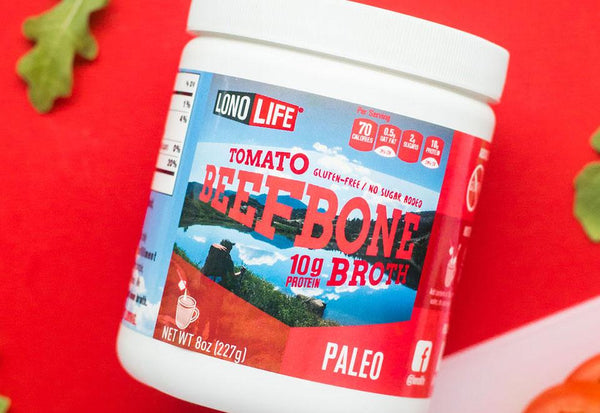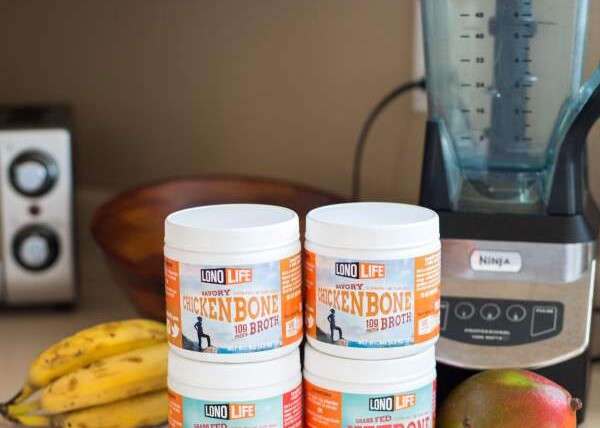“We all have the power within us to change the world in a positive way…It just takes one idea, one individual, one scientist, one company or one community to make a difference in the world. That’s the power of one.”
These are the words of Sean Patrick — late founder of the HERA Foundation. This incredible organization exists to champion women to empower themselves by taking control of their own health decisions in order to fight the often undetected threat of ovarian cancer.
And therein lies the key: “Often undetected”.
Ovarian cancer doesn’t have the high-profile attention some other cancers do, and as a result there is not as much funding or awareness. HERA is here to do something about that.
We have been active supporters of HERA for a while now and with their upcoming Climb4Life event, we thought now was as good a time as ever to chat with them about how women can recognize the signs of ovarian cancer, how they can advocate for themselves with their doctors, and more.
We hope you can take something valuable away from the following, and maybe even share it with someone you think needs to read it.
Could you share the significance of the name “Hera” without our audience?
HERA stands for Health, Empowerment, Research and Awareness.
In Greek mythology Hera was the wife of Zeus, and in a sense, the very first feminist. Hera empowered women to be heard within their relationships and throughout their lives. She encouraged women to find their strengths by following their passions. The HERA Ovarian Cancer Foundation continues to do the same-championing women to empower themselves by taking control of their own health decisions in order to fight the often undetected threat of ovarian cancer.
Why do you think there is still such a lack of awareness, information, and funding for ovarian cancer?
Other, more high-profile cancers receive greater attention and money. Because there are fewer numbers of healthy survivors to raise awareness for ovarian cancer, research has been grossly under-funded. As a result, progress on ovarian cancer has stalled due to lack of adequate research dollars. HERA works to change this by awarding grants, providing public education and staying active on the national advocacy front. The priority is to better understand the disease so that a test for early detection and more effective treatments can be developed.
HERA is committed to funding annual “Outside-The-Box” grants. These OTB grants are awarded to scientists carrying out cutting edge research dedicated to finding new directions in the prevention, early detection, treatment, and cure of ovarian cancer. By supporting promising M.D’s, Phds, post-Docs, and other clinical investigators with innovative ideas, HERA seeks to both nurture the new approaches, and retain the talented scientists choosing to make a career of fighting ovarian cancer.
Where did the inspiration come from to launch Climb 4 Life?

Sharon White, ovarian cancer survivor
Sean Patrick (1951-2009) founded HERA in 2002.
Sean was an avid skier, mountain biker, hiker, and had become an accomplished rock climber.
At age 46, she faced the greatest test of her life: a diagnosis of ovarian cancer. During her recovery from surgery, she decided to use her passion for the outdoors to address the lack of awareness, information, and funding for ovarian cancer by creating the HERA Women’s Cancer Foundation. The Climb4Life became the organization’s signature event.
Sitting on a half-dozen boards working on cancer-related issues, Sean met dozens of women suffering from ovarian cancer and taught herself everything she could about the disease. “I had a lot of time to think,” she said. “I became interested in what were the political, social and funding obstacles to coming up with better testing for the disease and more effective treatments – you know, those middle of the night rants that take place in a hospital room. I decided we needed to frame the dialogue as a political and social problem versus a health/medical problem. I wanted to understand what the obstacles were to timely access and quality care. I guess part of the reason I got involved was a way of taking back control of my life.”
On January 20th, 2009, our dear friend and mentor succumbed to ovarian cancer after a twelve year battle. She fought the disease personally, as well as for all women. It was her wish to share her knowledge and experience to improve the lives of other women afflicted with this disease. However, her legacy reaches far beyond those impacted by ovarian cancer, validated by the thousands of women who have been touched by her compassion, selfless commitment and endless dedication to change.
Do you see parallels between the challenges people face when climbing and those women face when diagnosed with cancer?
The nature of climbing presents participants with experiences that can provide valuable lessons to those dealing with “real life” situations, including health issues. Skills such as evaluating and calculating risks, problem solving under stress, and overcoming physical and mental hardships are exactly the kind of day to day challenges many cancer patients must deal with. The self-imposed difficulties of climbing can be seen as a metaphor, and used to inspire others to go beyond their comfort zone, trust themselves, and to push past and reset the boundaries in their lives. Sean Patrick was fond of saying “When you’re out there on a ledge and there’s a storm rolling in, you can’t just cut the line. You have to keep on going and fighting.”
What are the key signs and symptoms of ovarian cancer and why is it so important for women to recognize them early?
There is no screening method for early detection for ovarian cancer. Pap smears test only for cervical cancer. The symptoms of ovarian cancer are vague and often overlooked, leading to later detection:
- Abdominal swelling or bloating, increased girth
- Persistent pressure or pain in the abdomen or pelvis
- Difficulty eating or feeling full quickly
- Urinary concerns, such as urgency or frequency
- Change in bowel habits with new onset constipation and/or diarrhea
- Unexplained vaginal bleeding
- Nausea, indigestion, or gas
- Unusual fatigue. Shortness of breath.
- Unexplained weight loss or gain
Any woman may have these symptoms for reasons not related to ovarian cancer. However, if these symptoms are new and unusual and persist daily for more than two weeks, a woman should see her doctor, preferably a gynecologist, and should ask about ovarian cancer. A transvaginal ultrasound, pelvic/rectal exam, and CA125 blood test may be necessary. If ovarian cancer is suspected, see a gynecologic oncologist immediately.
How can women advocate for themselves with their doctors when they feel something just “isn’t right”?
This is key! Because the symptoms are so generic, the threat of ovarian cancer often goes unexamined. Please, do not ignore persistent and unexplained abdominal symptoms. Ask your practitioner to perform a pelvic/rectal exam at a minimum, or refer you to someone who can. Ask your practitioner about the current status of blood markers and transvaginal ultrasound for detection of ovarian cancer.
HERA recognizes that when a woman is diagnosed with ovarian cancer it is important that she feels empowered to seek the treatments that best fit her needs. At the heart of HERA is the underlying premise that women need to have the knowledge and the confidence to fully understand and advocate for the direction of their healthcare.
What do you hope Hera has achieved 10 years from now?
Obviously, we would love to be part of finding a cure, or at least better detection methods and treatments. Additionally, raising awareness of the symptoms, and encouraging women to advocate for themselves is core to our mission. We feel our support of OTB research gives us the best chance of finding and supporting individuals committed to fighting ovarian cancer, with the goal of taking their ideas from the bench to the bedside, and eventually to market. Basically, we would love to put ourselves out of business.
Find out more at https://herafoundation.org/


























